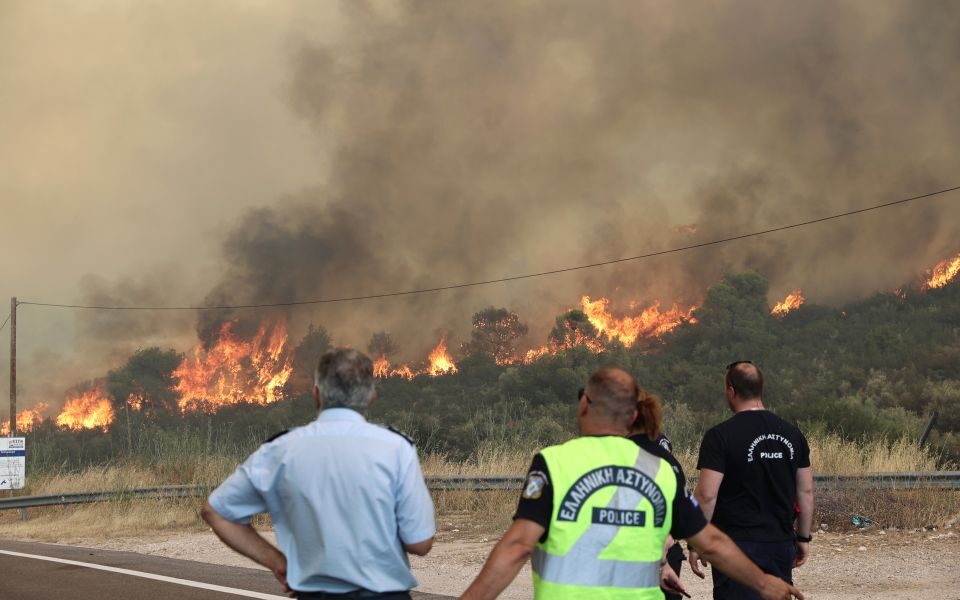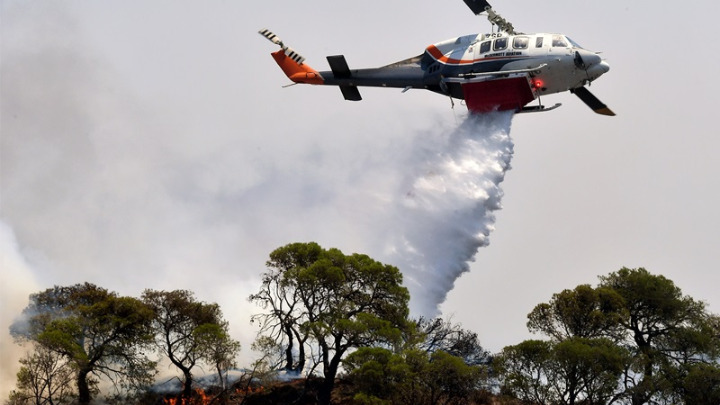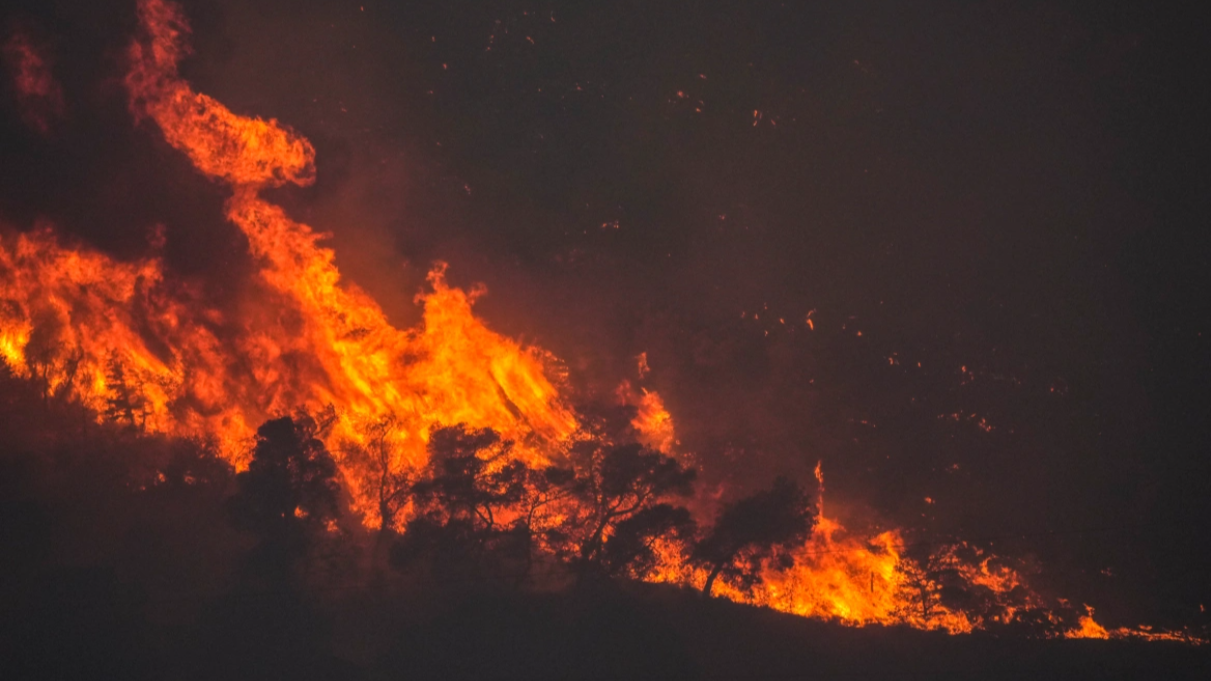For a third consecutive day, wildfires continued to rage west of the Greek capital of Athens on Wednesday, wreaking havoc on forests, homes, and communities, leading to widespread evacuations.
The situation has been exacerbated by the anticipation of a new heatwave that is likely to fuel the already explosive conditions across the country.
On Wednesday morning, air and water bombers resumed their efforts over the towns of Mandra, west of Athens, and Loutraki, situated near the Corinth canal, which separates mainland Greece from the Peloponnese.
The fire brigade also reported a fresh fire on the Greek island of Rhodes, causing devastation to forestland. In response, three villages and a hotel in a mountainous area were swiftly evacuated, as reported by a local governor to Greece’s SKAI TV. The fire did not pose an immediate threat to tourist resorts.
Firefighters on the mainland have been working tirelessly throughout the night to contain the flames and prevent them from reaching a complex of coastal refineries. However, due to rapidly shifting winds and the thick blanket of smoke enveloping the region, the situation remains highly challenging. Authorities have issued evacuation orders for three areas, directing residents to head to the town of Megara for their safety.

International solidarity has been evident, with Italy and France dispatching four aircraft to join the firefighting efforts. Additionally, firefighters from Romania, Poland, and Slovakia have been deployed across the country to provide valuable assistance in battling the wildfires.
Israel will also send two aircraft from the Elad Squadron to assist in combatting the raging wildfires in Attica, Corinth, and Rhodes, following a request by the Greek government.
While wildfires are not uncommon in Greece, the region has experienced hotter and drier summers in recent years, turning the Mediterranean into a wildfire hotspot.
Greek Prime Minister Kyriakos Mitsotakis has been closely monitoring the situation and visited the national operations centre to receive updates on the ongoing firefighting efforts.

The Greek meteorological service had earlier issued warnings about an elevated risk of fires, particularly as the country recovers from the initial major heatwave of the summer. Tragically, a second heatwave is expected to commence on Thursday, adding to the difficulties faced by firefighters.
The current blaze started on Monday in the Dervenochoria region, approximately 30 km north of Athens, and quickly spread, fuelled by strong winds, reaching Mandra on Tuesday, leading to the destruction of homes and forcing residents to flee.
Despite the authorities’ evacuation orders, some individuals hesitated to leave their homes, creating challenging situations for emergency responders. Videos captured Greek police imploring nuns at a convent and urging people at a timber yard to evacuate in the face of towering flames.
The devastation is evident, with many homes gutted and communities in distress. Some residents expressed their heartache, like Andreas Theodosiadis, who mourned the loss of everything they built, and Elpida Paroutsidi, whose home suffered significant external damage.
The region has previously experienced the impact of natural disasters, including flash floods that claimed 24 lives in Mandra in 2017, and a deadly wildfire that killed 101 people in the seaside town of Mati, east of Athens, in 2018.
As of now, the wildfires in west Attica have consumed approximately 3,472 hectares, including 164 built-up areas, houses, businesses, and farms, according to the EU’s Copernicus/Emergency Management Service – Mapping service.
The European Union has promptly responded to Greek requests for assistance, and Copernicus has played a vital role in environmental monitoring, climate change analysis, and emergency management, offering valuable aid to the Greek government in dealing with these environmental disasters.
Source: Ekathimerini.

